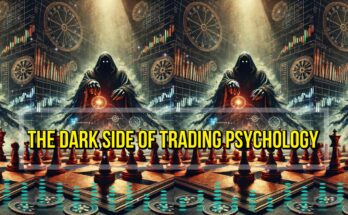Trading Psychology is the mental and emotional aspect of trading that often determines success or failure more than strategies or technical skills. While knowledge of charts, indicators, and market fundamentals is important, a trader’s mindset plays a much bigger role in decision-making.
At its core, trading psychology deals with how traders handle emotions such as fear, greed, hope, and regret. Fear can cause hesitation, leading to missed opportunities or premature exits. Greed can push traders to take unnecessary risks or hold on to trades too long. Hope often traps traders in losing positions, while regret can lead to revenge trading, where decisions are made emotionally rather than logically.
A strong trading mindset focuses on discipline, patience, and emotional control. Successful traders understand the importance of sticking to a plan, managing risk, and not letting emotions dictate their actions. For example, setting stop-loss levels and respecting them helps remove the emotional burden of deciding when to exit a trade. Similarly, maintaining realistic profit targets prevents greed from taking over.
Self-awareness is also key in trading psychology. Traders must constantly evaluate their thought patterns and behaviors. Keeping a trading journal is one effective way to identify emotional triggers and correct mistakes. Over time, this practice builds confidence and consistency.
Another essential element is resilience. Losses are inevitable in trading, but how one responds to them defines long-term success. Emotionally resilient traders accept losses as part of the process and focus on continuous improvement rather than being discouraged.
In conclusion, mastering trading psychology means mastering yourself. It requires discipline, emotional balance, and mental resilience. By controlling emotions and sticking to a structured plan, traders can improve decision-making, reduce costly mistakes, and increase their chances of sustainable success in the markets.

